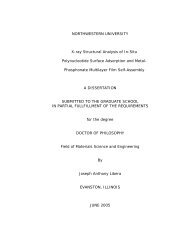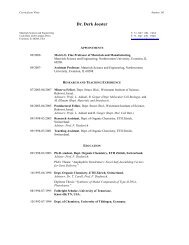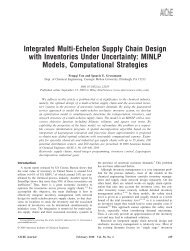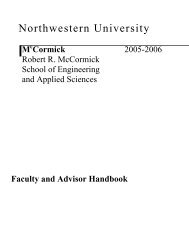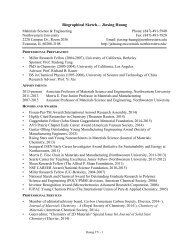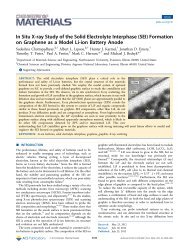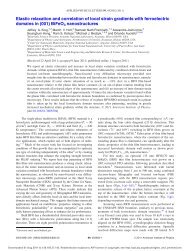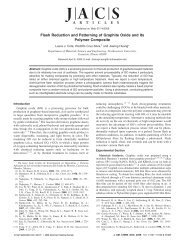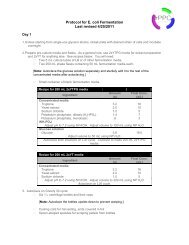Community-Based Operations Research - Humanitarian Logistics
Community-Based Operations Research - Humanitarian Logistics
Community-Based Operations Research - Humanitarian Logistics
Create successful ePaper yourself
Turn your PDF publications into a flip-book with our unique Google optimized e-Paper software.
Johnson and Smilowitz: <strong>Community</strong>-<strong>Based</strong> <strong>Operations</strong> <strong>Research</strong>Tutorialsin <strong>Operations</strong><strong>Research</strong>, c○ 2007 INFORMS 107hazards. Finally, nonprofit management addresses general issues in management of community-basedor community-oriented service providers. In §2 we will review selected researchliterature in these broad application areas.Table 2 displays a variety of community-based OR application areas according to multipleattributes such as geographic/temporal scope, performance/outcome metrics, and modeling/computationalcomplexity. If there are multiple examples of published OR applicationsin a particular category, we emphasize the application we believe has the strongest communityorientation.Note that community-based OR problems can be operational, tactical, or strategic innature; that analytical methods from logistics and multicriteria decision-analysis/decisiontheory tend to dominate, and that there are multiple outcome measures of interest, someof which may require knowledge of economics to quantify (e.g., net social benefit), others ofwhich may require close examination of stakeholder values (e.g., equity).1.5. What is <strong>Community</strong>-<strong>Based</strong> OR’s Profile Within the Profession?We conclude this introductory section by assessing the visibility of community-based ORwithin the OR/MS community. <strong>Community</strong>-based OR appears to have a low profile withintop-tier disciplinary OR/MS journals. A review of articles published between 2002 and2007 whose topics appear consistent with our definition of community-based OR yields fourpapers in <strong>Operations</strong> <strong>Research</strong> out of 401, 1 or 1%, and no papers in Management Science,Transportation Science, orInformation Systems Review.<strong>Community</strong>-based OR also appears to have a low profile within academic degree programsthat intersect OR/MS. A scan of curricula of top schools, according to the 2007 rankings ofU.S. News and World Report [90, 91], indicates that within the top 25 undergraduate industrialengineering/operations research programs, none appears to offer courses that addresscommunity-based OR; within the top 10 graduate industrial engineering/operations researchprograms, only one offers one or more courses whose content includes community-based OR.Within the top 25 undergraduate business programs, only one appears to offer one or morecourses that address community-based OR; a similar result holds for the top 25 graduateprograms in business. Finally, within the top 25 graduate programs in public affairs, onlythree offer courses with significant OR/MS content, and of these only one school’s OR/MScourse offerings appear to address community-based OR.We acknowledge that much important work in OR/MS that intersects community-basedOR is done outside of business schools, departments of industrial engineering and remainsunpublished, or is published in non-OR/MS flagship journals. For example, pro bono ORconsulting and applications, as advocated by Woolsey [97] and McCardle [66], often addressproblems of interest to public-sector organizations. However, we believe that a greateremphasis on community-based OR in education, research, and practice may increase theprofessional returns to those who work in this area. We make specific suggestions in thisregard in the final section.2. Literature ReviewIn the years since the Parry and Mingers (1991) survey of community OR, a number ofpapers have appeared that address their concerns. In the review that follows, we focus onstudies in OR/MS and related fields that address analytic methods, public or nonprofitmanagement, localized needs, equity concerns, or disadvantaged/underserved populationswith a bias toward model-based prescriptions.1 Three of these papers appeared in a special 50th anniversary edition of <strong>Operations</strong> <strong>Research</strong> comprised ofspecially commissioned retrospectives.



